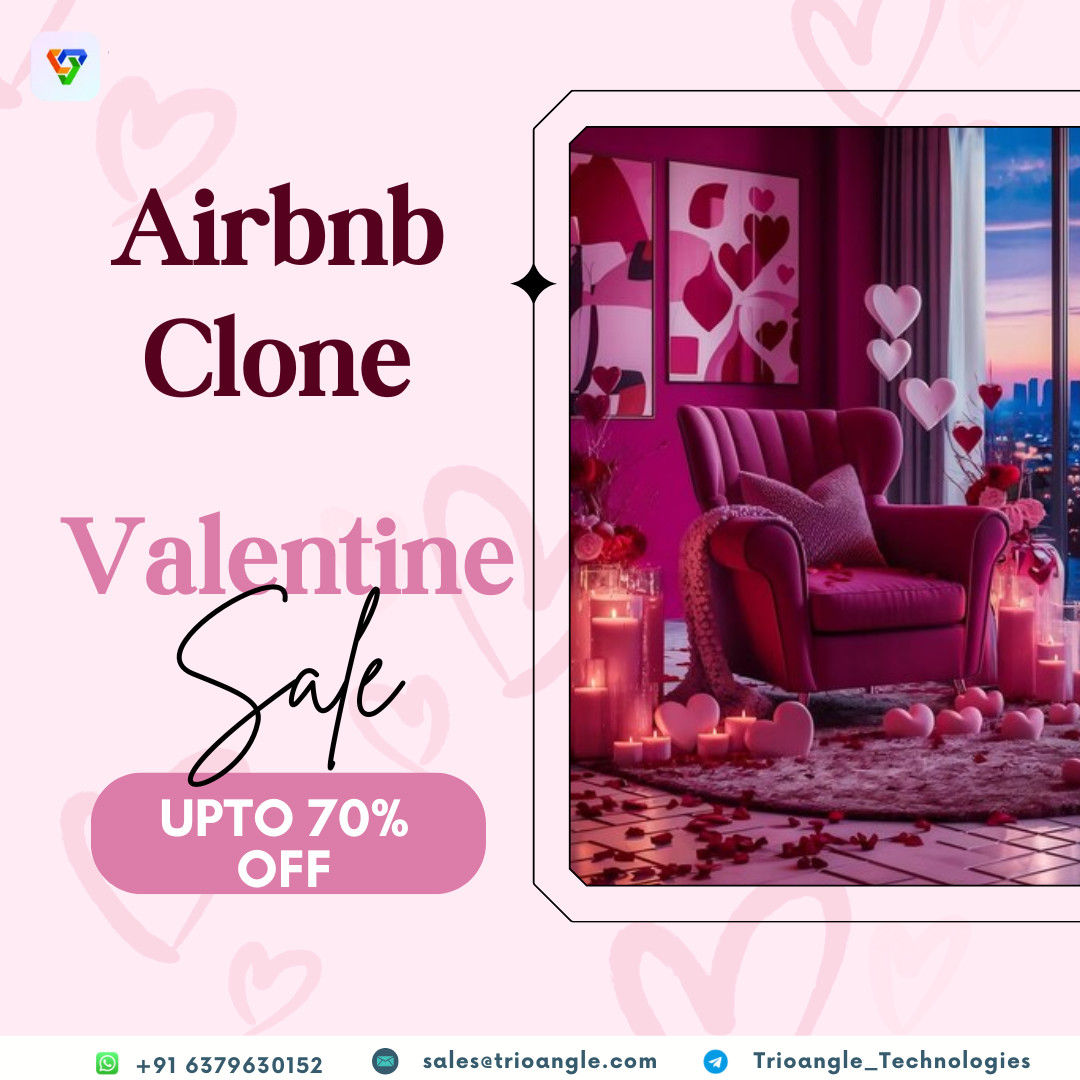Launch Your Own Airbnb Clone – Flat 50% Off for a Startup Special offer
Launch your own rental marketplace with our top-rated Airbnb clone! Get a fully customizable, feature-rich platform at flat 50% off. Perfect for startups ready to grow fast. Don’t miss this limited-time offer—kickstart your online rental business today
Kindly Reach Us :
sales@trioangle.com
+91 6379630152
For Free demo : https://www.trioangle.com/airbnb-clone/
Launch your own rental marketplace with our top-rated Airbnb clone! Get a fully customizable, feature-rich platform at flat 50% off. Perfect for startups ready to grow fast. Don’t miss this limited-time offer—kickstart your online rental business today
Kindly Reach Us :
sales@trioangle.com
+91 6379630152
For Free demo : https://www.trioangle.com/airbnb-clone/
Launch Your Own Airbnb Clone – Flat 50% Off for a Startup Special offer
Launch your own rental marketplace with our top-rated Airbnb clone! Get a fully customizable, feature-rich platform at flat 50% off. Perfect for startups ready to grow fast. Don’t miss this limited-time offer—kickstart your online rental business today
Kindly Reach Us :
sales@trioangle.com
+91 6379630152
For Free demo : https://www.trioangle.com/airbnb-clone/
0 Comments
0 Shares






